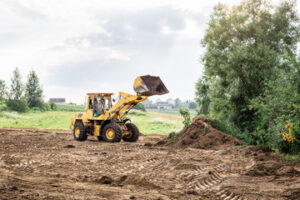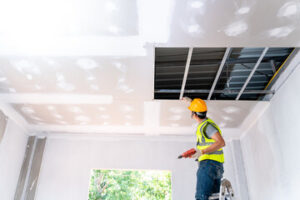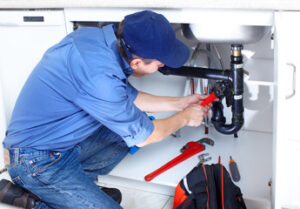Finding reliable movers has become essential for stress-free relocations. The demand for professional moving services has increased with the rise in mobility. Clients seek efficient and secure ways to transport their belongings. Movers Spring TX have responded by adopting innovative techniques and customer-focused solutions.

Technology has transformed how movers operate and manage logistics. Real-time tracking systems allow clients to monitor their shipments. Automated scheduling reduces delays and improves efficiency. Clients experience greater transparency and peace of mind.
Custom moving plans have gained popularity among clients. Movers assess individual needs and create tailored solutions. This includes specialized packing, secure transport, and organized unpacking. Personalized services lead to higher customer satisfaction.
Eco-friendly practices have become a priority for many movers. Recyclable materials are now used for packing to reduce waste. Energy-efficient transport reduces fuel consumption and emissions. Clients appreciate the commitment to sustainability.
Handling fragile and high-value items requires expert care. Movers use advanced padding and protective materials for delicate objects. Climate-controlled transport ensures proper storage conditions. This reduces the risk of damage during transit.
International moving has become more efficient with improved global networks. Movers coordinate with customs and local authorities to prevent delays. Secure handling procedures ensure the safety of shipments. Clients benefit from smoother cross-border transitions.
Corporate relocation services have expanded to accommodate business needs. Movers handle office equipment and employee transfers with precision. Proper planning reduces business downtime and operational disruption. Companies benefit from seamless transitions.
Pet relocation has become more specialized and secure. Movers provide custom carriers and temperature-controlled environments. Trained staff handle animals with care and attention. Clients feel reassured knowing their pets are in safe hands.
Vehicle transport has seen improvements in security and tracking. Movers use custom carriers to protect cars and motorcycles. Real-time GPS tracking allows clients to monitor their vehicle’s location. This increases confidence and reduces delivery uncertainty.
Heavy and oversized item handling requires specialized equipment and expertise. Movers use lifting tools and protective padding for large objects. This includes safes, pianos, and industrial machines. Proper handling reduces the risk of injury and damage.
Senior relocation services have gained attention for their thoughtful approach. Movers assist with packing, downsizing, and emotional support. Gentle handling of sentimental items reduces stress for older clients. This ensures a smoother and more comfortable transition.
Art and antique moving services have become highly specialized. Movers use custom crates and temperature-controlled transport. Special handling techniques prevent damage to valuable pieces. Clients benefit from professional care and attention to detail.
Temporary storage solutions have become more flexible and secure. Movers offer short- and long-term storage options. Climate-controlled units protect sensitive items from damage. Clients appreciate the added convenience during complex moves.
Hybrid moving models have increased flexibility for clients. Movers provide a mix of full-service and self-service options. Clients can choose services based on their budget and needs. This approach increases accessibility and convenience.
White-glove moving services have gained popularity among high-end clients. Movers handle every aspect of the move with precision and care. Packing, transport, and setup are all included. This premium service ensures a seamless experience.
Freight-based moving has become a solution for large-scale relocations. Movers coordinate bulk shipments through freight carriers. This reduces costs and improves transport efficiency. Clients benefit from faster and more organized delivery.
On-demand moving services have introduced greater flexibility. Clients can schedule last-minute moves through digital platforms. Rapid response times accommodate urgent relocation needs. This appeals to clients with unpredictable schedules.
Packing assistance has become more structured and professional. Movers provide customized packing kits and protective materials. Proper labeling and organization reduce unpacking time. Clients appreciate the attention to detail and care.
Portable storage solutions have provided added convenience. Clients can pack items into portable containers at their own pace. Movers handle the transport and storage process. This gives clients more control over their relocation timeline.
Damage protection plans have increased client confidence. Movers offer insurance options for different types of moves. Coverage includes potential damage or loss of valuable items. Clients feel more secure knowing their possessions are protected.
Virtual consultations have simplified the planning process. Clients can conduct home tours through video calls. Movers assess the volume and type of items remotely. This reduces the need for in-person visits and speeds up scheduling.
Technology-driven inventory systems have improved accuracy. Movers use barcode and RFID tracking for detailed item monitoring. Clients can access inventory lists through mobile apps. This reduces the risk of lost or misplaced items.
Home staging services have become an added offering by movers. Movers assist with furniture arrangement and decor placement. Professionally staged homes attract higher offers. This increases the overall value of the moving service.
Climate-controlled transport has addressed the need for delicate item protection. Movers use specialized vehicles for temperature-sensitive items. This includes artwork, wine, and electronics. Proper conditions prevent damage during transit.
Stress-reduction techniques have been integrated into the moving process. Movers provide relaxation and wellness support during relocations. Clients receive guidance on managing anxiety and emotions. This holistic approach improves the overall experience.
After-move support has become a valued service. Movers assist with unpacking, furniture assembly, and organization. Clients settle into their new homes more quickly. This reduces post-move stress and confusion.
Flexible payment options have increased client convenience. Movers accept various payment methods, including digital wallets. Payment plans are available for larger moves. This makes moving services more accessible.
Cross-border moves have become more efficient with international networks. Movers coordinate with foreign partners for consistent service quality. Improved customs handling reduces delays. This ensures smoother international transitions.
Senior downsizing services have provided emotional and logistical support. Movers help with sorting and organizing possessions. Sensitive handling of sentimental items eases the emotional burden. This creates a more comfortable moving experience.
Client feedback has become essential for service improvement. Movers analyze customer reviews to adjust and improve services. Suggestions are implemented to increase client satisfaction. This continuous improvement strengthens client trust.
Pet-friendly moving services have enhanced the experience for pet owners. Movers provide comfortable and secure transport for animals. Special care reduces pet stress during the move. Clients receive updates and support throughout the process.
Specialized handling for high-value equipment has expanded. Movers transport laboratory equipment, medical devices, and industrial machinery. Custom packing and transport methods ensure protection. This reduces the risk of operational disruption.
Art installation and handling have expanded the scope of moving services. Movers assist with setting up artwork and display pieces. Proper placement and securing ensure long-term stability. Clients appreciate the attention to detail.
Heavy and oversized item handling has become more specialized. Movers use custom equipment to transport large objects. Proper handling techniques reduce the risk of damage. Clients benefit from professional and secure delivery.
Pet relocation services have become more focused on animal comfort. Movers provide soft bedding, temperature control, and hydration. Regular updates reassure clients during transit. This reduces stress for both pets and owners.
Real-time route optimization has increased delivery efficiency. Movers use GPS and traffic data to select the fastest routes. Adjustments are made based on road conditions. This reduces delivery times and fuel consumption.
International relocation services have improved with streamlined processes. Movers handle customs paperwork and import regulations. Proper coordination reduces delays and unexpected fees. Clients benefit from a more predictable moving experience.
Hybrid storage and transport models have increased flexibility. Movers offer temporary storage while clients arrange their final destination. This allows clients more time to settle. Movers coordinate final delivery based on client convenience.
Advanced packing materials have improved item protection. Movers use foam inserts, shock-absorbing wraps, and secure seals. Specialized materials protect fragile and valuable items. Clients experience fewer issues with damaged goods.
Logistics coordination has become a key strength of modern movers. Strategic planning reduces transit times and costs. Efficient scheduling improves overall delivery accuracy. Clients benefit from smoother and faster relocations.








